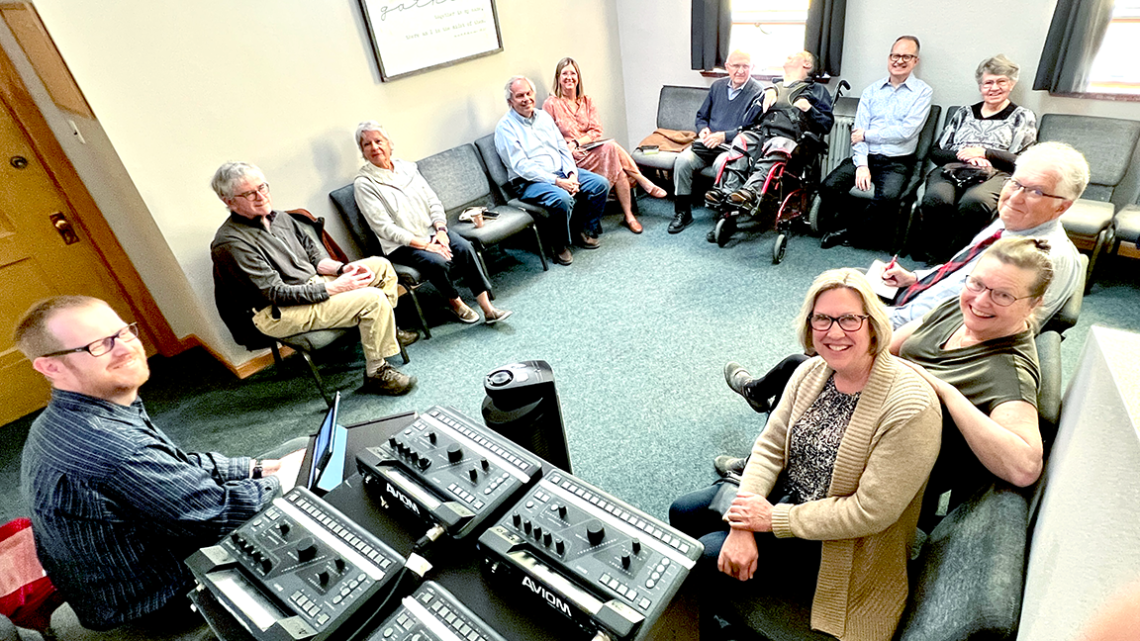When I was growing up, I remember our Sabbath school class did not have a sophisticated approach to questions and answers. In those days, what also never changed was memorizing a weekly verse.
These days, the value of studying a designated weekly lesson has not diminished; but how it is studied on a Sabbath morning has changed. There are congregations where the lesson Study Guides are simply read from the beginning of a weekly lesson to the last quote for Friday.
Gary Nowlan, who started the Contemporary Issues class some 30 years ago, remembers the first Sabbath my wife and I came to worship in Boulder. “I remember when you joined our study group. And after hearing your name, I said to myself that I wanted to get to know you. My wife wrote a children’s book about the church’s first missionary to Europe, Michal Belina Czechowski, and you evaluated it,” said Gary Nolan, an honored church member and a former head elder in Boulder.
I asked some of my fellow students why they have chosen this particular in-person only class, as the choices are many. Currently, we study the “quarterly” booklet, but other classes opt for a variety of approaches to studying the Scripture.
“You come because of the people, who are very accepting. Also, because of the open discussion where everyone seems comfortable making one or more comments and no one is condemned for what they say,” Nolan commented.
For Jackie Hayes, there is more than one reason. Referring to the focus of the class (to “explore contemporary aspects of Christian faith for the probing mind while following the topics of the Seventh-day Adventist quarterly”) she commented, “One factor is that the class seems to realize that merely a fine line separates the historical from the contemporary. Issues that have concerned followers of Jesus Christ throughout the ages are also current issues. Today’s understanding of the three angels’ messages is a nuanced understanding from the past, for example. Political and societal relationships are ever influencing our worship, regardless of the era.”
Hayes is also a long-timer. She added one other factor that has kept her a part of the class for 20 years is “the happy mix of challenge and acceptance I feel. I like that everyone in the class speaks freely and challenges my spiritual understanding often, at the same time welcoming and accepting me and each member as valuable.”
“I sense that I have grown spiritually after each class,” Hayes added. “I appreciate the opportunities we accept to put Jesus’ teachings into practice.”
For Kathy King, “camaraderie and friendships in the class” is one of the reasons for being a member of the class. Recognizing a mix of nationalities represented, she states that “different viewpoints on thoughts that are shared in the class stretch my brain—we have several who were born outside the US—I love hearing these perspectives on life and God.”
King further explained, “We don’t look at the quarterly and say, ‘This is what all of us should believe,’ even though the quarterly editor appears to feel this is what we should do.”
King considers the class a progressive thinking group, and she says she likes that. “We also have some wit and humor in the class that is great for life.” No doubt. But who the members are adds to its vibrancy and exciting discussion, as among the class members there is a geology professor, a physician, several nurses, a chaplain, a lawyer and an IT professional, as well as a minister or two.
The class, which also hosts a sharing and prayer time, offers itself to visitors, and some of them are intrigued by the very name, Contemporary Issues.
William Bradshaw is our newest regular class member. It was some six months ago when Alicia Patterson, a pastor’s wife, met and chatted with William at a Barnes & Noble bookstore. He decided to visit the church. Initially he did “class shopping” and found the contemporary class to be “his fit.”
When asked why he says: “It feels right. I get a good return on my investment. I am surrounded by people who are not just wise but they love the Lord and [live] according to His purpose.”
Not a member of the Adventist Church, he participates in the discussion, but also asks questions about comments which are “spoken in Adventese language.” He often asks: What does that mean?
Having his participation adds an important factor, a need to speak about our beliefs in a common language, says Tomas Bartulec, one of the class leaders. “Our Bible study is vibrant and exciting to attend,” he added.
“I love my class,” says another regular, Betty Welch. “They are like a family for me.”










